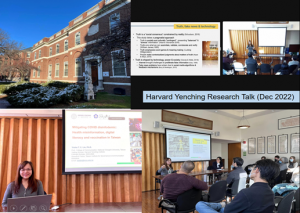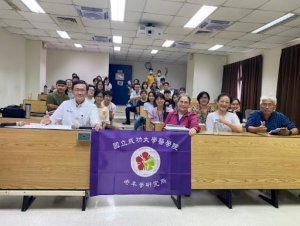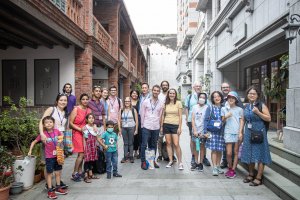“I HAVE LOTS OF MONEY!” It was the second time that I said this to the saleslady at Vitamin World. I had never said this before in my entire life. I had to say it because she insisted on paying for the vitamins I selected, and she wanted to give me cash for dinner after she found out that my credit card was over the limit (and I am a foreigner travelling in her country). Also, at a famous BBQ restaurant in Dayton, Ohio, a waitress offered me 16 different side dishes for free after I curiously asked about them. She said that she knew that I was a foreigner travelling in her country and that she was happy to let me enjoy the great taste of all of the different sides. I encountered many of these types of people during my Fulbright research trip from Sept. 2015 to April 2016. Their kindness, their considerateness, their hospitality, and their supportiveness made me feel that many Americans are angels! And personally, I consider myself a lifetime friend of Americans!
On this trip to 25 states and 72 community colleges, I have found out that many of our American angels are quite local, not internationalized enough for this global society in the 21st century. Many students do not have passports, have never travelled abroad to experience a different culture, and are unable to use another language fluently. Although with a good heart, sound knowledge, and advanced skills, many students do not have a profound understanding of international affairs do not know what major issues might trigger international changes; and do not even recognize the potential opportunities and threats followed by some global trends.
Senator J. William Fulbright said, “The Fulbright Program aims to bring a little more knowledge, a little more reason, and a little more compassion into world affairs and thereby to increase the chance that nations will learn at last to live in peace and friendship.” U.S. President Eisenhower believed that understanding replaces ignorance, and cooperation replaces confrontation. I believe both of them were referring to international education as the major solution.
Believing in a similar idea, my Non-Peer Collaboration model was established, and the research was conducted by the support of Fulbright Taiwan. On this research trip, I discussed seriously with college leadership regarding how to improve their international education for their students and spent a large amount of effort in presenting to (and interacting with) students and faculty to inspire them to explore the world while they are still young.
It was a once-in-a-lifetime opportunity to travel seven months in the United States, to meet with so many people (new friends and old ones), to visit so many beautiful places with pristine scenery, and to enjoy all sorts of delicious food.
Also, I was very fortunate to have the opportunity to exchange ideas with the top minds in community colleges, to prove my model’s feasibility and value, and to positively impact students (and faculty) in their global perspective. Learning from many passionate educators, I have improved my model and strengthened my confidence to implement this model. This research has a solid foundation for the future collaboration with American community colleges and 4-year Chinese universities to improve their international education in three major areas: Campus Internationalization, Study Abroad, and Curriculum Internationalization. Professionally, I am happy to be an ambassador of American community colleges to promote their merits to Chinese society.
Without the support from the Fulbright Program, Institute of International Education, Foundation for Scholarly Exchange, and Outreach Learning Fund, this research (and the visits) would not have been possible at all. I cannot thank them enough. In addition, my host institution, Pellissippi State Community College, a visionary in international education, gave me the best support that one could ever expect. American Association of Community Colleges, Community Colleges for International Development, Inc., and other institutes were also very kind to share their comments and resources to support my research. Almost all of the colleges that I visited have demonstrated their passion in international education and have sincerely discussed and provided their own comments for my model. I wholeheartedly thank them and bless the development of their international education programs.
Post Views: 3,438







